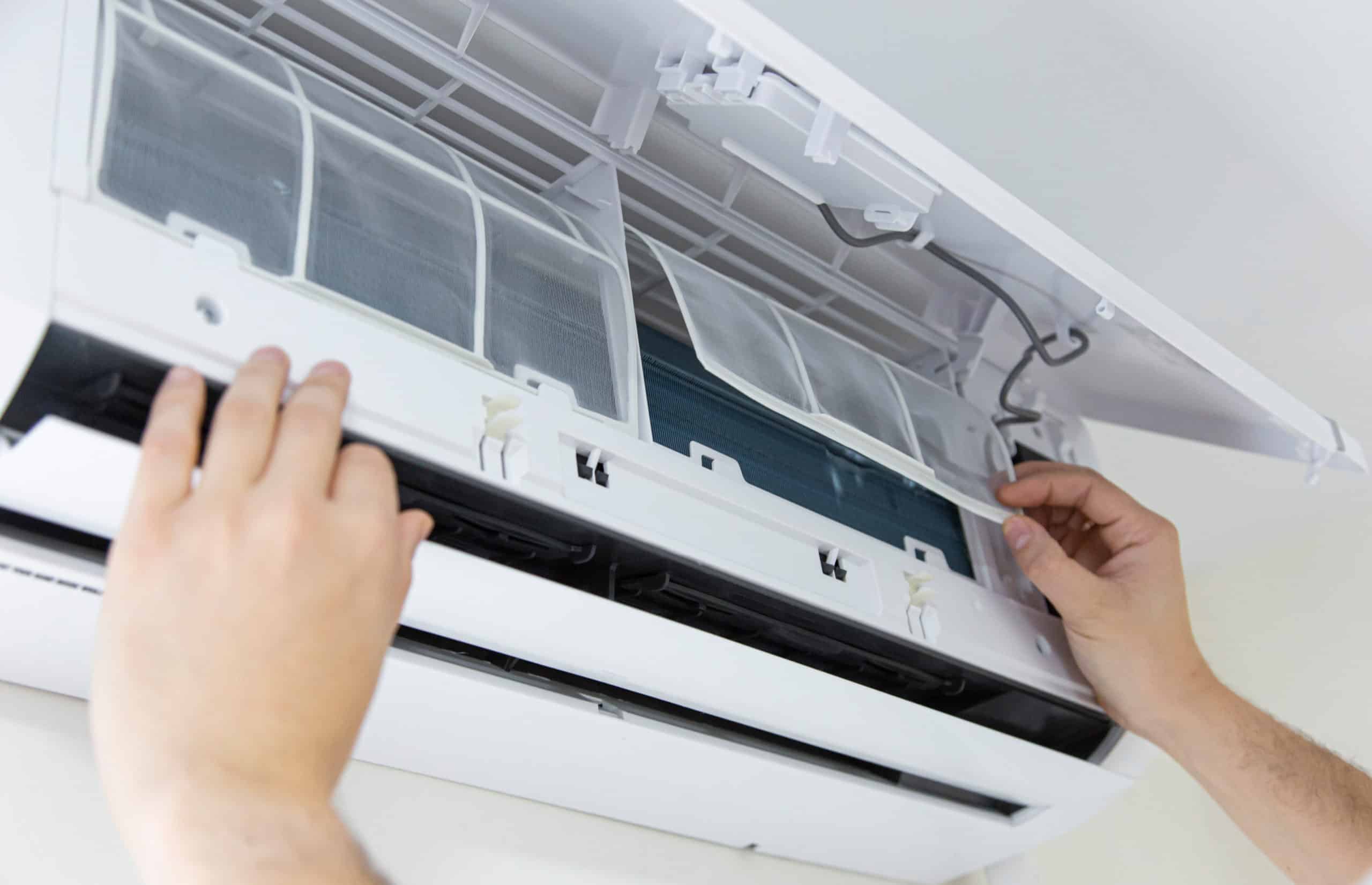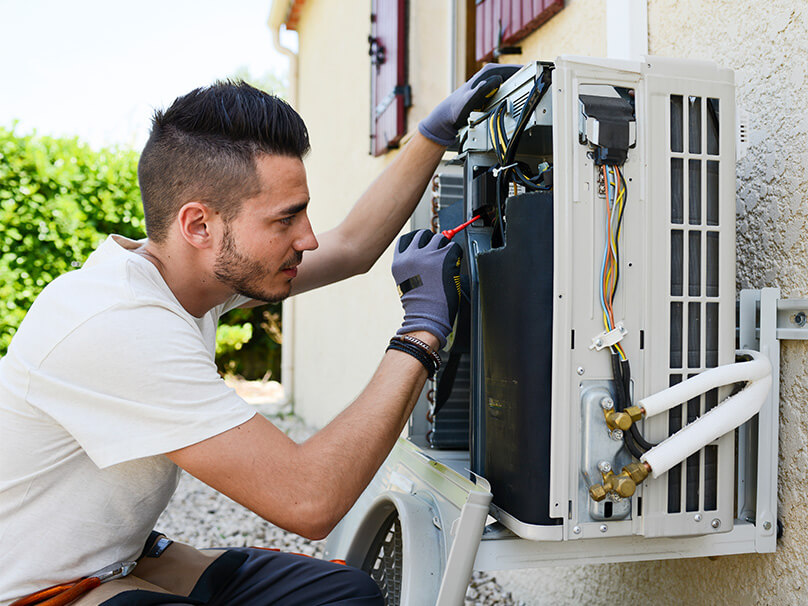Little Known Questions About Air Conditioner Repair Near Me.
Little Known Questions About Air Conditioner Repair Near Me.
Blog Article
An Unbiased View of Ac Air Conditioner Repair
Air Conditioning Repair: Expert Cooling System Repair Ensures Your Home Stays Comfy Throughout The Year
Types of AC Systems
When tackling AC repair work, understanding the type of a/c system you're dealing with can conserve time, cash, and irritation. Ever questioned why some systems cool a space quicker than others? Or why certain systems appear to break down more regularly? Let's peel back the layers.
Central Air
The 7-Second Trick For Fix Air Conditioner
Picture a cool breeze streaming through a whole house, whispering convenience into every corner. Central air conditioning systems do precisely that. They use a network of ducts to disperse cooled air, depending on a compressor and condenser outside, combined with an evaporator coil inside. But when this complex beast falters, pinpointing the problem can be like finding a needle in a haystack.
Split Systems

Split systems are a popular choice for lots of homes-- part indoor unit, part outside compressor. They use flexibility and effectiveness, however their dual nature indicates repair work can include either element. Have you ever heard an unusual sound outside your house just to discover the indoor system isn't cooling? That's a traditional sign of a split system problem.
What Does Ac Air Conditioner Repair Mean?
Window Units
These compact warriors fight summer season heat by fitting snugly into a window frame. They integrate all parts into a single box. Their simpleness often implies fewer repair work headaches, but ignoring filters or enabling particles accumulation can result in lessened efficiency or breakdowns.
Ductless Mini-Splits
Air Conditioning Repair Near Me Can Be Fun For Everyone
Ductless systems bypass ductwork totally, making them ideal for homes without existing ventilation. They're quiet, efficient, and remarkably resilient. When repair work are required, technicians must be skilled at managing refrigerant lines and electrical connections-- no small task.
Quick Recommendation Table
| Type | Secret Includes | Typical Repair Issues |
|---|---|---|
| Central Air | Ductwork, whole-house cooling | Duct leaks, compressor failure |
| Split System | Indoor & & outside systems | Refrigerant leakages, fan motor concerns |
| Window Unit | All-in-one, easy setup | Unclean filters, electrical faults |
| Ductless Mini-Split | No ducts, zoned cooling | Line leakages, sensor malfunctions |
Air Conditioning Repair Near Me Fundamentals Explained
Unraveling one of the most Regular Air Conditioning Problems
Have you ever wondered why your air conditioning unit unexpectedly stops cooling throughout a sweltering afternoon? One common culprit is an unclean or clogged up air filter. This tricky bad guy limits airflow, forcing your system to work overtime, which not only minimizes efficiency but can likewise lead to early breakdowns. Picture attempting to breathe through a headscarf soaked in dust-- it's exhausting!
Another frequent hiccup is refrigerant leakages. These undetectable leaks do not just reduce cooling power however can likewise harm the compressor, the heart of your a/c system. How often do you examine for unusual hissing sounds or ice formation on the coils? Capturing these signs early can conserve you from expensive repairs down the line.
Beyond the Basics: Lesser-Known Issues
Ac Air Conditioner Repair for Dummies
In some cases, the thermostat itself is the mischief-maker. Miscalibrated or malfunctioning thermostats send out blended signals, triggering the a/c to cycle unpredictably. Ever skilled your air conditioning switching on and off in rapid succession? That's called short biking, a tricky performance drainer that can use out parts faster than you 'd anticipate.
Electrical problems, such as used circuitry or a malfunctioning capacitor, might prowl below the surface area. Air Conditioning Repair. These often manifest as a/c units stopping working to begin or unexpectedly shutting down. A professional eye knows to test these elements with precision tools, something a casual glance will not expose
Professional Tips for Diagnosing Common AC Issues
Things about Repair Air Conditioner Near Me
- Check and change air filters regularly-- every 1 to 3 months depending on usage and environment.
- Listen for unusual sounds like rattling or buzzing that might signify loose parts or electrical faults.
- Check the outside system for particles or clogs that impede air flow and cause getting too hot.
- Search for frost accumulation on evaporator coils, a tip towards refrigerant issues or air flow restrictions.
- Evaluate the thermostat settings and recalibrate if the temperature readings feel off.
Quick Reference Table: Symptoms & & Probable Causes

| Sign | Probable Cause | Specialist Pointer |
|---|---|---|
| Warm air blowing | Low refrigerant or unclean coils | Tidy coils and check for leakages immediately |
| Short biking | Thermostat concerns or oversized unit | Adjust thermostat settings and seek advice from sizing guidelines |
| Unit will not begin | Electrical faults or capacitor failure | Test wiring and change capacitors as needed |
| Water leakage | Blocked drain line or frozen evaporator | Clear drain lines and inspect for coil icing |
DO IT YOURSELF Air Conditioner Upkeep Tips
Fix Air Conditioner Can Be Fun For Anyone
Ever seen your air conditioning unit sputtering like an old engine on a hot summertime day? Overlooking subtle indications typically suggests more than simply a sweaty afternoon-- it's a start to unanticipated air conditioning repair work expenses. But what if you could capture those whispers before they turn into wails? Regular DIY upkeep can be your very first line of defense.
Easy Steps to Keep Your Air Conditioner Running Efficiently
Air Conditioning Repair Near Me - The Facts
- Clean or Change Filters: A clogged filter is like attempting to breathe through a scarf. Every 1-3 months, inspect and switch out your filters. It enhances airflow and efficiency, avoiding compressor pressure.
- Examine the Condenser Coils: Dust and particles function as unnoticeable blankets smothering your unit's cooling power. Gently brush or vacuum the coils, however avoid severe chemicals that may deteriorate the metal.
- Check the Drain Line: When was the last time you glimpsed at your drain pan? A blocked drain can trigger water leakages and foster mold development. Flushing it with a vinegar service month-to-month keeps the circulation clear.
- Seal and Insulate: Are your ductworks whispering leakages? Sealing spaces with mastic or foil tape enhances performance and cuts down on uneven cooling.
Pro Tips Beyond the Basics
- Step your unit's voltage to catch subtle electrical wear before it triggers big problems.
- Listen for uncommon hums or rattles-- these acoustic breadcrumbs frequently signal loose parts or stopping working motors.
- Keep outside units shaded however make sure at least 2 feet of clearance around them for optimum air flow.
Ask yourself: Are you hearing your air conditioning's quiet SOS or just awaiting it to shout? Requiring time for DIY air conditioner maintenance changes reactive repair into proactive care, conserving sweat, stress, and yes, money.
Fascination About Ac Fixing
Why Knowledge in Air Conditioner Repair Work Matters
Envision this: your air conditioner unit sputters and groans during a scorching afternoon, leaving you sweltering inside your home. Would you trust a newbie fumbling with delicate parts, or would you seek the reassurance of a expert air conditioning service technician!.?.!? The intricacies of modern-day a/c systems get more info demand accuracy and experience. A minor mistake can intensify a small breakdown into an expensive catastrophe.
Getting The Repair Air Conditioner Near Me To Work
Unseen Intricacies Behind the Cool Breeze
Many undervalue the layers hidden underneath the smooth exterior of an air conditioning unit - Air Conditioning Repair. From refrigerant leakages that quietly drain pipes efficiency to malfunctioning thermostats that misread temperatures, these problems require more than a basic toolkit. Professionals possess an eager eye for diagnosing problems that average homeowners overlook
Necessary Tips for Picking the Right Service Technician
The Buzz on Repair Air Conditioner Near Me
- Accreditation and Training: Verify qualifications; a service technician trained in the current HVAC technologies is vital.
- Experience with Particular Systems: Not all air conditioning systems are created equal; discover somebody knowledgeable about your model's quirks.
- Diagnostic Method: Skilled specialists utilize sophisticated tools-- like electronic leakage detectors and thermal imaging-- to pinpoint covert faults.
What to Get out of a Pro's Diagnostic Process
| Action | Function | Specialist Insight |
|---|---|---|
| Visual Evaluation | Determine obvious wear or damage | Try to find rust or uncommon sounds-- a dead giveaway often overlooked |
| Pressure Checking | Detect refrigerant leakages | Subtle pressure drops can hint at micro leaks invisible to the naked eye |
| Electrical Evaluating | Guarantee circuit stability | Loose connections can simulate extreme mechanical failures |
What Does Air Conditioning Repair Near Me Mean?
Why DIY Typically Falls Short
Appealing as it is to play with your a/c unit, DIY repairs regularly miss the origin. Topping off refrigerant might momentarily cool your space but disregards leaks that worsen over time. Professional professionals don't just patch symptoms; they hunt down the underlying mechanical and electrical faults that sap performance.
The Single Strategy To Use For Air Conditioning Repair Near Me
Concerns to Ask Before Hiring
- What diagnostic tools do you utilize to determine problems?
- Can you discuss the repair work process and anticipated outcomes?
- Are you familiar with the refrigerants suitable with my unit?
- Do you follow security procedures for handling electrical elements?